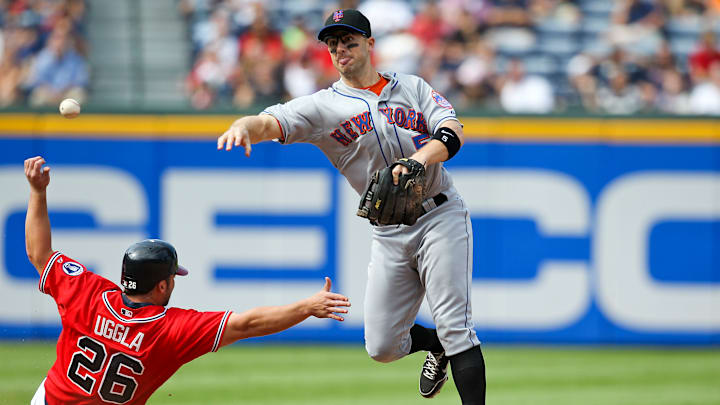Tuesday evening, MLB announced its Hall of Fame Class for 2024. While Adrian Beltre, Todd Helton, and Joe Mauer earned their election, other worthy former players, like former Braves Andruw Jones, Billy Wagner, and Gary Sheffield missed the cut. The voting trend at least looks somewhat promising for Wagner and Jones to make it next year.
One player who the voting trend doesn't look promising for, however, is newcomer and former Braves nemesis David Wright.
Results: pic.twitter.com/QJ8hIstrSk
— Ryan Thibodaux (@NotMrTibbs) January 23, 2024
David Wright's Hall of Fame candidacy warrants a closer look
The good news is that Wright did surpass the 5% threshold to stay on the ballot for 2025. Former Braves Kenny Lofton and Ted Simmons (who eventually made the Hall of Fame via the Veterans' Committee) weren't so lucky, falling off the ballot after the first year.
The bad news is it means that it's almost impossible that Wright ever makes the Hall of Fame, at least through the BBWAA voting. Even Larry Walker, who had to wait out all 10 years on the ballot, started at 20.3%
Braves legend Andruw Jones, who has spent the last seven years climbing through the voting, started at 7.3%.
There are plenty of arguments against David Wright's Hall of Fame candidacy. For example, his lack of longevity and counting stats are working against him.
However, there's a striking similarity with him and another player who was just elected into the Hall of Fame. That player being Joe Mauer.
One of these players got in on the first ballot while the other only got 6.3% of votes... pic.twitter.com/EZR1OADY0C
— Min Sub (Mitchell) (@MinSub4) January 24, 2024
Both players broke into the league in their age-21 season in 2004. Both players immediately made huge contributions to their teams right away and suffered unfortunate injuries that ultimately ended their careers into their age-35 seasons.
In fact, from 2004 until 2014, David Wright actually accumulated a higher bWAR than Joe Mauer did (48.6 bWAR to Mauer's 46.3 bWAR).
One major argument in favor of Mauer is positioning. After all, Mauer was a catcher while David Wright was a third baseman.
Except 2013 was Mauer's final season as a catcher, moving to 1B permanently in 2014 because of repeated concussions. This move predated Wright's injuries.
For the rest of Mauer's career, he was a slightly above-average hitting 1B who averaged just over 2.1 bWAR per season after moving away from catching.
2014 was Wright's final full season. A chronic back injury limited him to a total of 77 games from 2015-2018. His final two games in 2018 were done as a favor to Wright and an opportunity for Mets fans to say farewell.
This is not to discount Mauer's last five seasons and it's certainly not an argument that he didn't deserve to make the Hall of Fame.
This also isn't an argument that Wright was a huge snub. There is merit in Mauer's ability to stay on the field those final five years to continue to build his resumé for the Hall of Fame. The Twins legend's career was, at the end of the day, better than Wright's.
However, it wasn't by that much. The difference between the two's careers, 6.0 bWAR, is basically an Austin Riley season.
Staying on the field for four more seasons is a huge reason why Joe Mauer got 76.1% of votes, while a chronic back injury that forced Wright off the field nearly eliminated the possibility of writers and fans taking a closer look into the 3B's accolades on future ballots.
My BravesKast co-host, No More Fielders just did a video on David Wright's replacements that I encourage you to check out (I promise you, we're both Braves fans).
It mostly details the Mets' trajectory after Wright, but the first ten minutes give you a lot of perspective on how much Wright meant to the team, and how devastating the injury was.
The journey to the Hall isn't always a smooth and David Wright has a long one ahead of him.
